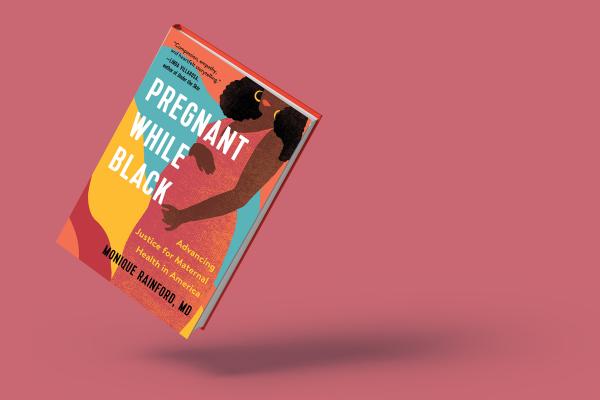WHEN TORI BOWIE'S autopsy report was released in June, the cause of death stunned many track fans. The 32-year-old sprinter had won several medals at the 2016 Olympics. On May 2, Bowie was found dead in her apartment; the one-time “World’s Fastest Woman” had been eight months pregnant and was in labor when she died.
Bowie’s tragic death caused renewed attention to an ongoing health crisis affecting Black women in the United States. Despite being relatively young and in presumably good health, Bowie’s autopsy indicated she suffered from eclampsia and respiratory distress, pregnancy complications experienced by Black women in the U.S. at much higher rates than other demographics.
In Pregnant While Black: Advancing Justice for Maternal Health in America, Dr. Monique Rainford addresses this troubling truth: Black mothers in the U.S. are dying. They face more risks in pregnancy than white and non-white Hispanic women living in the United States.
And these health risks aren’t just isolated to the pregnant person. “Simply put,” Rainford writes, “the effects of slavery, Jim Crow, persistent economic barriers, continued mistreatment of Black people, based on a completely avariciously designed human notion that Black people are lesser human beings, can affect a developing baby in the womb.”
Throughout the book, Rainford uses her decades-long experience as an OB/GYN and an abundance of scientific studies about maternal health to convincingly argue for a different approach to Black women’s health — an approach that’s far more holistic, far more aware of the barriers facing Black women in the U.S., and consequently, far more just.
Pregnant While Black looks beyond the boundaries of pregnancy and labor to consider how a toxic brew of misogynoir shapes Black women’s navigation of infertility, miscarriages, preterm and multiple births, mental health, and stillbirths. The stories Rainford shares show how Black women in the U.S. are poorly served in every aspect of health care — their symptoms unaddressed by a system and by doctors who overlook signs of trouble, including patients’ reports of pain.
Despite the deplorable state of care for Black women, Rainford is not without hope. She reports incidences where seemingly minor changes, like assigning doulas to journey with Black women through the birthing process, can dramatically improve outcomes — that is, the birth of healthy babies by healthy mothers. Rainford also notes that increased advocacy, advancements in the professional development for doctors, and some legislative endeavors are also making a difference.
Of course, these efforts come far too late for Bowie and the thousands of other Black women who will die in childbirth this year, to say nothing of the many Black babies who will also die. Rainford, a Catholic, argues that those who are truly pro-life need to alter their focus, fighting not only to end abortion, but also the deaths of babies — and their mothers — who aren’t given the chance to live.
“Pro-life movements appear to target their interventions exclusively on preventing women from having abortions,” Rainford writes. “How about investing resources in reducing women’s risk for miscarriage?” She argues that even these interventions “might not be enough” until people are committed to changing unjust conditions for Black women and the many stressors they face.

Got something to say about what you're reading? We value your feedback!







